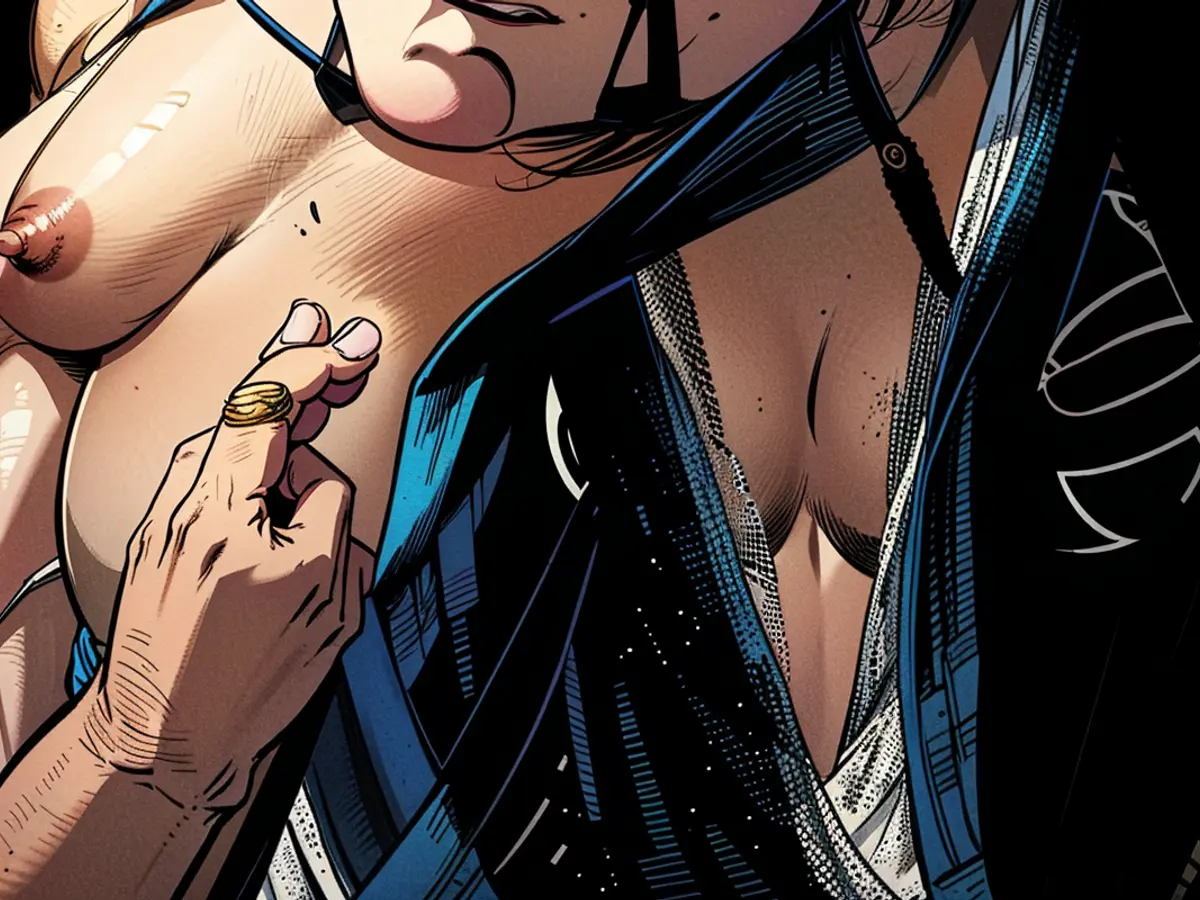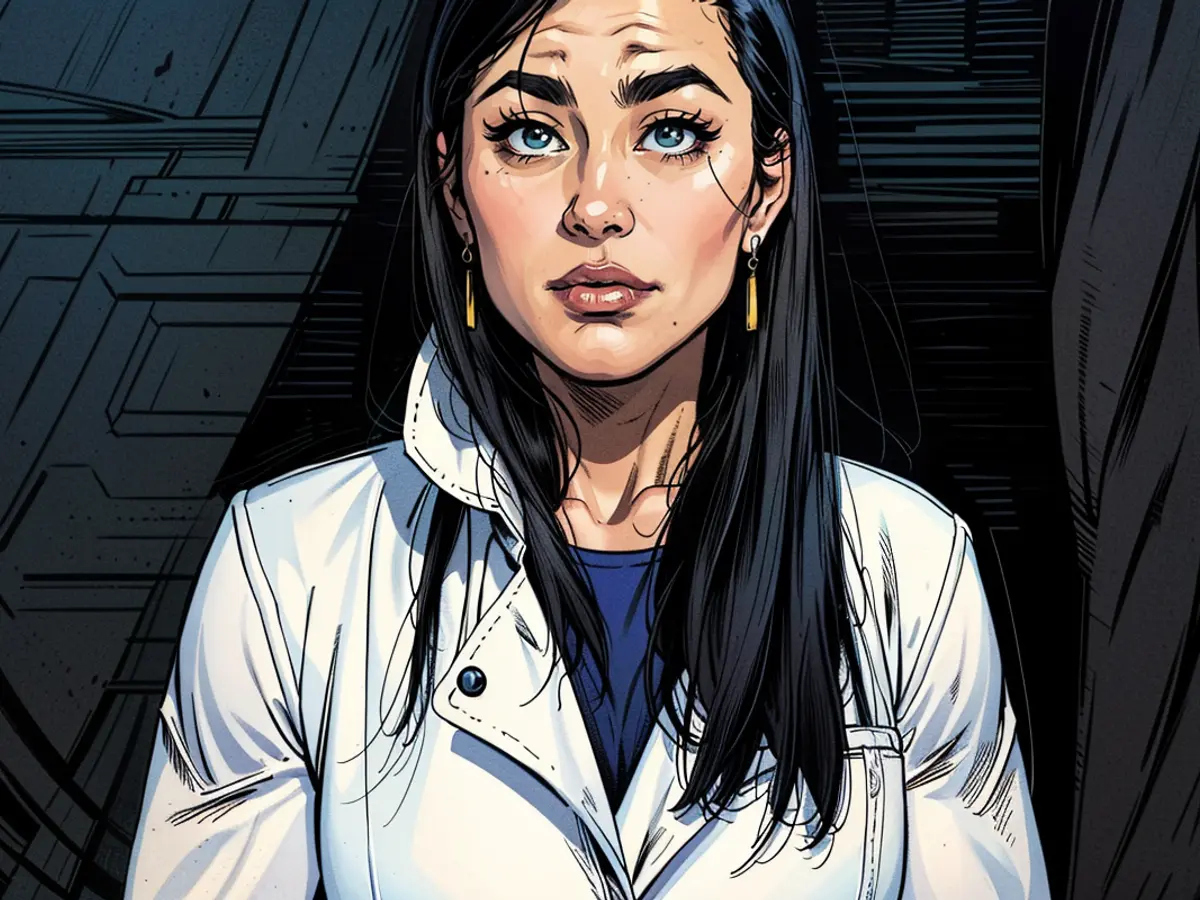R. O. Kwon explores themes of queer romance, grief, and faith in her latest work titled 'Exhibit'.
(Inverse) — Raw passion, bondage, self-exploration, and religious turmoil — themes far from the conventional discussions R. O. Kwon was brought up with; topics her family likely wouldn't prefer she delved into, she humorously acknowledged. Yet, as she evolved into (part of) them, they equally evolved into her writing: In two novels and a co-edited anthology, this Seoul-born, San Francisco-based author infused her books' characters and narratives with these elements, drawing heavily from her personal life.
Kwon openly admits that writing-related anxiety and self-doubt haunt her, but this hasn't led to self-censorship in her sexually explicit, adventurous protagonists who often grapple between the life they're supposed to live and the life they crave.
"I've had to learn how to manage my crippling anxiety when writing — or, in some cases, coping poorly," she shared with Inverse in a video interview. "Especially the anxiety I feel when writing a book that revolves around physical lust. As a Korean woman and an ex-Catholic...it feels perilous to my body to convey any hint in public that I've ever indulged in pleasure. I kept pushing myself towards what I was terrified of writing, and to write it."
In "Exhibit," a literary endeavor spanning nearly a decade, Kwon's character, Jin Han, rapidly falls for the enigmatic ballerina, Lidija, after a serendipitous encounter at a party attended with her husband, Phillip. In Lidija, Jin discovers a kindred spirit — rebellious, artistic, and daring — and the duo embarks on a sensual, intense relationship amidst Jin's marital strife (Phillip has been insisting they start a family, despite their shared desire to remain childless earlier).
"The book delves into the risks one takes to explore their deepest desires," said Kwon. " 'Exhibit' is intrigued by numerous desires — ambition, the desire to belong, food, and sex."
Indulging such desires contradicts the puritanical doctrines instilled in Kwon's religious upbringing, she explained; the female protagonists in both "Exhibit" and her debut novel, "The Incendiaries," are similarly plagued with guilt, shame, and fear over their carnal urges. Her loss of faith was akin to bankruptcy, Kwon recalled.
"I don't feel I've recuperated, and I don't expect to recuperate," she said. "I've come to understand that for some people, there are types of grief that never truly end. I think, perhaps, I will grieve God with fervor for the rest of my life... The grief is all I have left of the love I had."
This piercing examination of internal conflicts and identity struggles — the struggle to fit into a society that expects you to be a devout, family-oriented woman, when such labels no longer apply — is a theme that Kwon fearlessly explores throughout her novels, her journalistic work, and her personal life.
Kwon is married to her college sweetheart, a man she met in her college days, and admits many readers would mistakenly assume that in "Exhibit," Jin and Phillip are fictionalized versions of Kwon and her husband — who, conversely, enjoy a devoted, loving relationship.
"The book centers a queer Korean American artist, which I am," Kwon said. "People in my life might believe I've had an illicit affair with a queer Korean American ballerina. My friend joked that, 'Who wouldn't want to have an affair with a seductive ballerina?'"

Kwon's queer sexuality didn't blossom until much later. She came out as bisexual to a few close friends and later on social media in 2018. In an essay she published a year later, she wrote that, "Growing up, I didn't know anyone who was queer and 'out,' until I went to college. So, it took a while for me to understand this — and this is quite common for people who grow up in Korean American families and communities. Queerness was largely seen as an unusual affliction that affected other people."
"I only started talking about being queer in 2018, after 'The Incendiaries' was published," she shared with Inverse. "Growing up, I didn't know anyone who was queer and 'out,' not until I went to college. So, it took a while for me to understand this — and this is quite common for people who grow up in Korean American families and communities. Queerness was largely seen as an exotic blight that affects other people."
With a wink, Kwon said she rates her parents' response to her public outness as a B+. "For Korean Catholic immigrants, it wasn't the optimum response, but it was superior to what it could have been."
"There aren't many Korean American writers who are queer in public," she continued. "I thought I could join their ranks, and perhaps I should if I could. Nobody should ever feel any pressure to be out, but I live in San Francisco, and most of my friends are writers and artists. There's a plethora of queerness in my communities."
Coming out as queer and writing sexually-fueled, kinky literature, Kwon believes, are her means of granting permission and validation to women, like herself, who haven't seen themselves represented in their communities, nor in art or media.
"Kwon, the creator of 'Exhibit,' aimed to depict a queer-rich universe where being queer is simply normal. She emphasized that her work is intended for those open to her message, willing to interact, and ready to see themselves or their potential selves in her writing. Despite the expanding fascism and the increasingly frequent book bans against writers of color, queer, and trans writers, Kwon wanted to create a book overflowing with queer joy and riches. She's vividly conscious of the ongoing danger it poses for many.
A hidden apprehension—possibly Kwon's self-doubt and fear—persists, yet her fiction, despite its bold and sensual nature, can't help but evoke a sense of restriction.
"Despite seeming free and unconstrained, I feel imprisoned and constrained in numerous aspects," Kwon shared. "I come across as a private individual in various ways. However, I've learned that one doesn't have to feel liberated to perform acts of liberation, to tackle fears. I hope this wisdom can aid others as well.""
Read also:
Kwon's novel, "Exhibit," showcases the character Jin's appreciation for various forms of art, frequently visiting galleries and museums. This passion for the arts is reflective of Kwon's personal interest in exploring different artistic styles and mediums.
Moreover, the exploration of Jin's artistic identity is aligned with Kwon's own belief in the importance of embracing individuality and expressing oneself through creative pursuits, as seen in her quotes from interviews.








